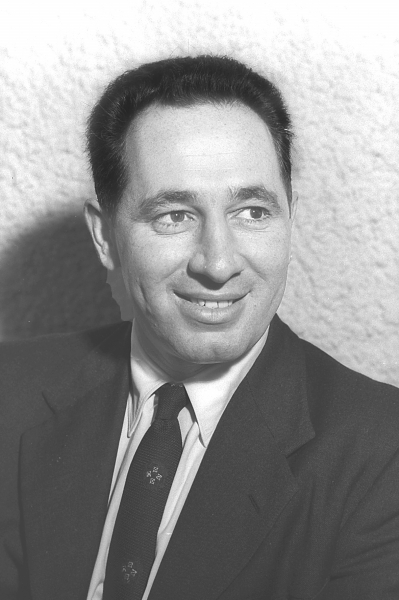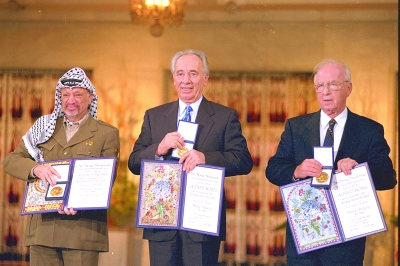The history of the State of Israel is the history of Shimon Peres.


Former Israeli President Shimon Peres died in Tel Aviv’s haim Sheba Medical Center on the early morning of 28th at the age of 93.
In January this year, Perez was hospitalized twice for heart discomfort. On the evening of September 13th, Perez was rushed to haim Sheba Medical Center for treatment because of a stroke. At that time, he suffered from severe intracranial hemorrhage. On the afternoon of the 27th, Perez’s condition deteriorated sharply and his whole body failed.
After Perez’s death, the Israeli media commented that Perez finally did something that his close comrades had been urging him to do, but he never did-rest! Even at the age of 93, Perez insisted on getting up at 3: 30 in the morning to read and exercise, and his daily schedule was full until late at night. The commentary published by the Jerusalem Post in Israel gave a very high evaluation to Perez: Perez has the longest service time among Israeli civil servants, and his life can be summarized as "Perez did not witness history, but wrote history, and the history of Israel is the history of Shimon Perez".
After learning the news of Perez’s death, people from all walks of life in Israel and world leaders expressed their condolences.
Israeli President rivlin, who is on a state visit to Ukraine, issued a statement saying that today is a very sad day for the Israeli people and the State of Israel. Perez is a symbol of the great spirit of the Jewish nation. He shows us the distant future, and we love him. According to the news from the Israeli President’s Office, rivlin interrupted his state visit and returned to Israel that morning.
Israeli Prime Minister Benjamin Netanyahu issued a video statement saying that Perez is a dreamer who can see the future. He devoted his life to Israel’s independence and security. Few people have made so much contribution to the country and nation like Perez. Netanyahu said that Perez was the founder and great leader of Israel, and his name will always be engraved in the memory of the country.
Majidi, the diplomatic adviser of Palestinian President Abbas, also told the media that Perez was a messenger of peace. He was committed to reaching a peace agreement with Palestinian leaders and prayed for peace with Palestinian President Abbas and Pope Francis.
Netanyahu also convened an emergency special cabinet meeting to commemorate Perez and set up a national funeral committee to take charge of the funeral. On the 29th, Perez’s coffin will be parked in the Knesset for public condolences. The funeral time is scheduled for the morning of the 30th, and the burial place is in the cemetery reserved for the founding fathers of Israel in Mount Herzl, Jerusalem. Many politicians should confirm that they will attend the state funeral ceremony.
Perez was born in a small village in Poland (now Belarus) on August 21st, 1923. In 1934, he moved to Britain-entrusted Palestine with his family. Perez’s political career lasted for 75 years, which is unique not only in Israel, but also in the world. He is a heavyweight in Israeli politics and is known as an evergreen tree in Israeli politics. Long before the founding of Israel, Perez joined the secret Jewish self-defense force Hagana. In 1948, Perez became the head of the naval affairs of the Ministry of National Defense, and later served as the head of the mission of the Ministry of National Defense in the United States and the general director of the Ministry of National Defense. In 1959, Perez became a member of parliament, and he resigned from parliament after being elected president in June 2007, which lasted for 48 years, becoming the longest-serving member of parliament in Israeli history. He has held almost all important public positions in the Israeli government and twice served as Prime Minister of Israel. In 2007, Perez was elected as the ninth president of Israel and became the first former prime minister to be elected president. In July 2014, Perez, who was nearly 91 years old, stepped down as president, but he is still active in the public sphere.
On the Middle East issue, Perez supported Rabin’s policy of making peace with Arab countries, was the main planner of Israel’s Middle East peace policy and the main representative of the Israeli government in negotiations with Palestine and Arab parties. He made important contributions to Israel’s peace agreements with Palestine and Jordan respectively. In 1994, Perez, then Minister of Foreign Affairs of Israel, won the Nobel Peace Prize together with then Israeli Prime Minister Yitzhak Rabin and Palestinian leader Yasser Arafat for the Oslo Accords, in recognition of their contributions to promoting Israeli-Palestinian peace. In 1997, Perez established the Perez Peace Center in Tel Aviv, which is dedicated to promoting Palestinian-Israeli peace. In the past few decades, Perez has been rushing to diplomatic occasions no matter what position he holds. Regarding his long-term focus on the Palestinian-Israeli issue, Perez said that in order to achieve peace with Palestine, Israel must withdraw from some important locations in the West Bank.
Perez has deep feelings for the people of China and China and has made important contributions to the development of China-relations. He attaches great importance to the development of China-Israel relations and thinks that China is the opportunity and hope of the world. Perez visited China three times as a minister, and in 2008, he participated in the opening ceremony of the Beijing Olympic Games and related activities as the President of Israel. In April 2014, Perez paid a state visit to China at the invitation of the Supreme Leader of president, China, which effectively promoted the sound development of bilateral relations.